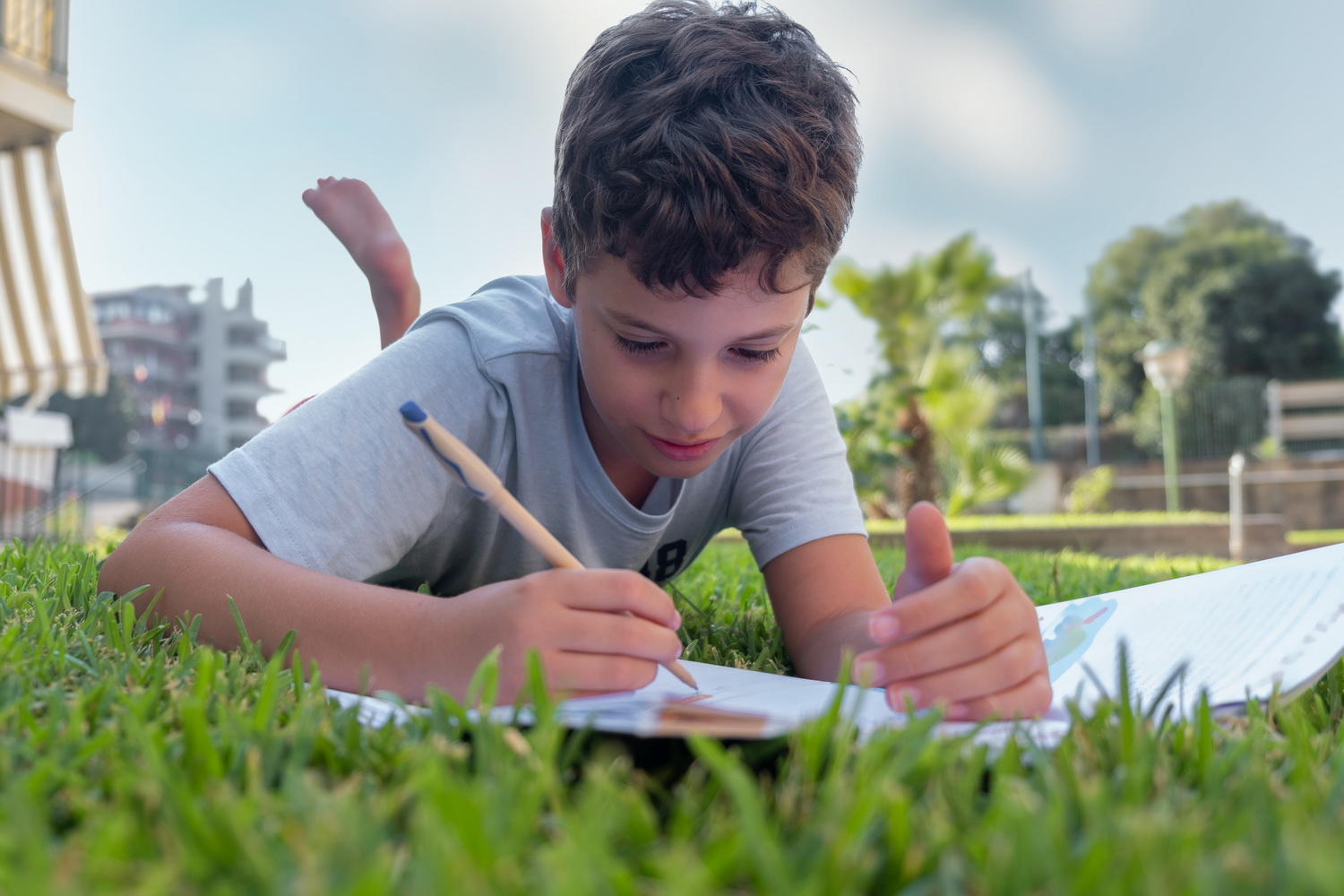Fine motor development Math Worksheets for Ages 6-9
5 filtered results
-
From - To
Unlock your child's potential with our Fine Motor Development Math Worksheets designed specifically for ages 6-9! These engaging worksheets seamlessly combine math practice with activities that enhance fine motor skills. Perfect for young learners, they encourage dexterity through cutting, tracing, and coloring tasks, while reinforcing essential math concepts like counting, addition, and shape recognition. Our easy-to-follow, visually appealing activities promote hands-on learning, making math fun and interactive! Help your child build confidence as they develop crucial skills that will set a strong foundation for future academics. Start exploring our comprehensive collection of worksheets today and nurture your child's growth in both math and fine motor skills!
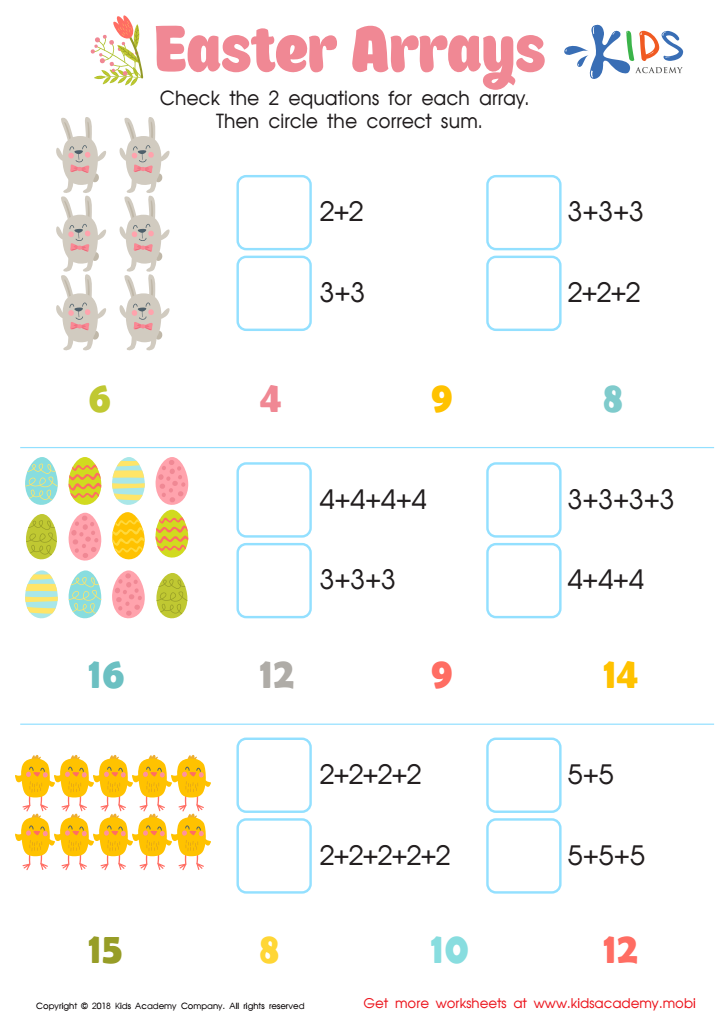

Easter Arrays Worksheet
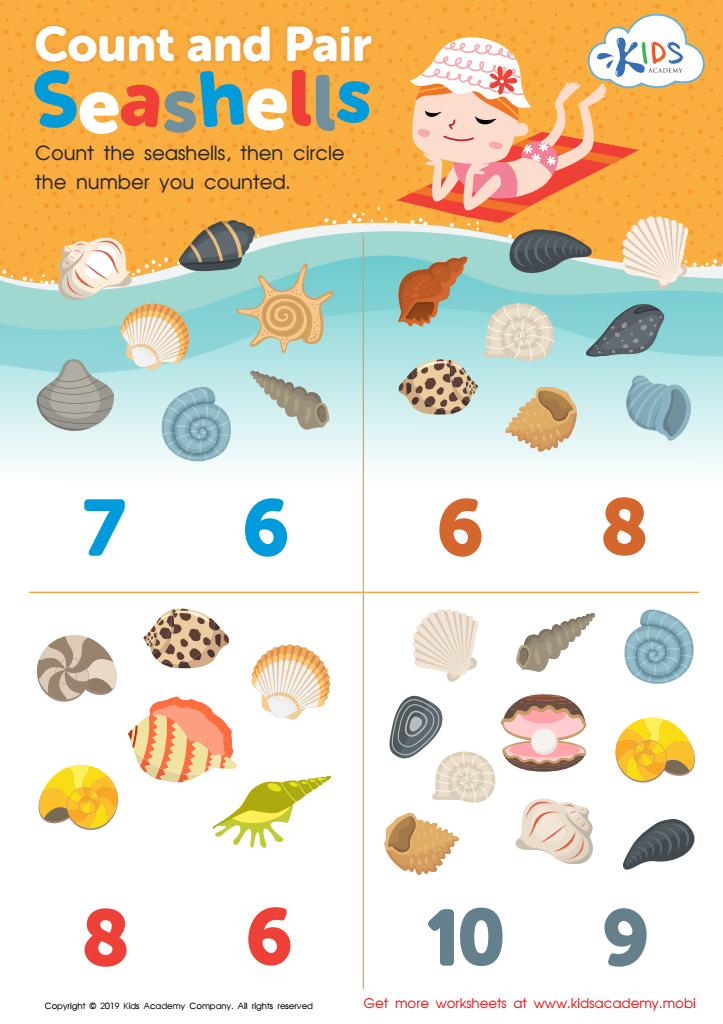

Count and Pair Seashells Worksheet
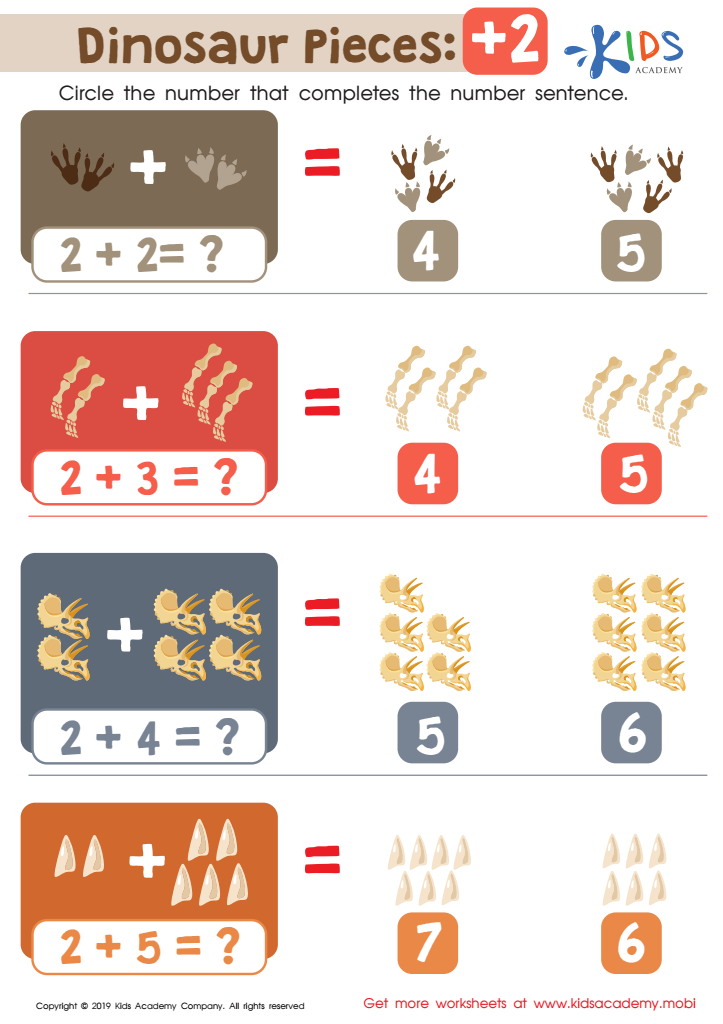

Dinosaur Pieces: +2 Worksheet
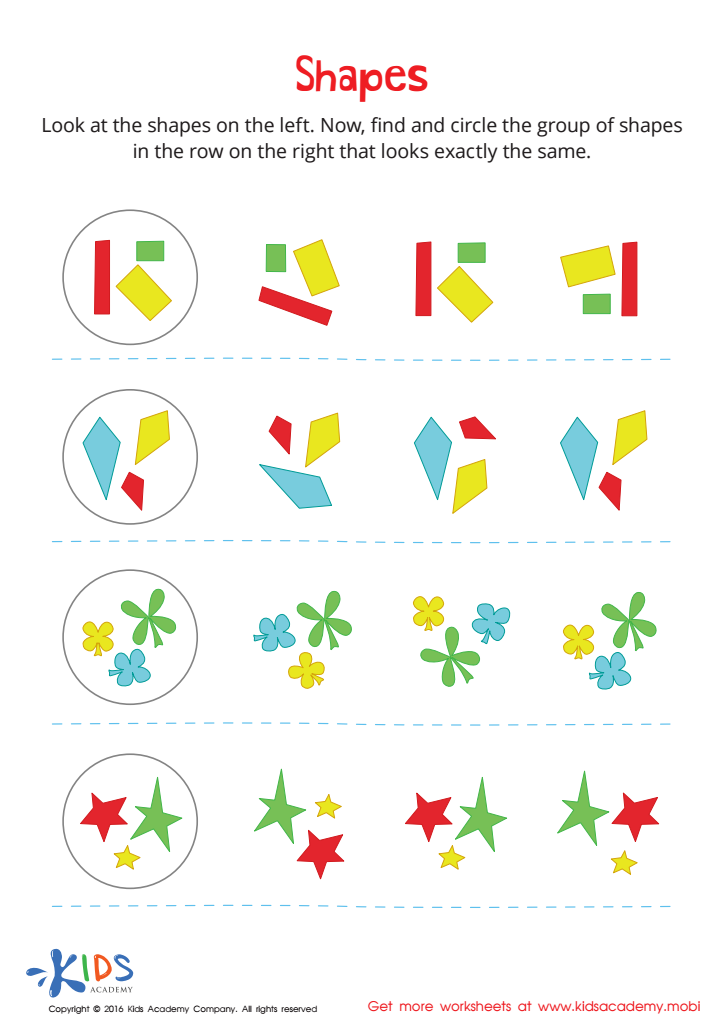

Shapes Worksheet
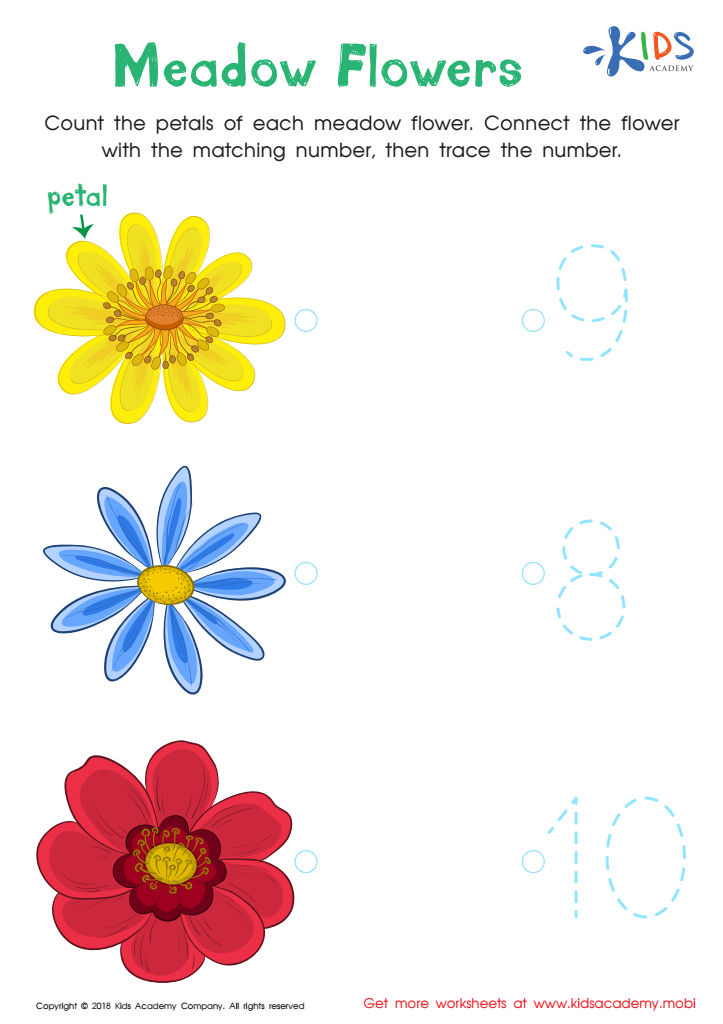

Kindergarten Number Tracing: Medow Flowers Worksheet
Fine motor development is crucial for children aged 6-9, particularly in the context of math learning. At this stage, children are refining their hand-eye coordination, dexterity, and control of finger movements, which play a significant role in grasping mathematical concepts. Engaging in activities such as manipulating counting blocks, shaping clay, or even writing numbers neatly requires fine motor skills. These tasks help solidify their understanding of quantities, shapes, and patterns, essential components of math.
Parents and teachers should recognize that fine motor skills facilitate a child's ability to engage in hands-on learning experiences, like measuring ingredients for a recipe or crafting geometric shapes. These activities not only enhance math proficiency but also foster critical thinking, creativity, and problem-solving skills. Additionally, strong fine motor skills boost a child's confidence in their academic abilities, promoting a positive attitude towards learning and exploration.
By prioritizing fine motor development in math education, educators and parents help children build a strong foundation for future learning. Skills developed at this age have lasting effects on a child's academic success and overall cognitive function, making it imperative to nurture these skills through targeted activities and encouragement. Ultimately, investing in fine motor skills supports well-rounded development and lifelong learning.
 Assign to My Students
Assign to My Students





